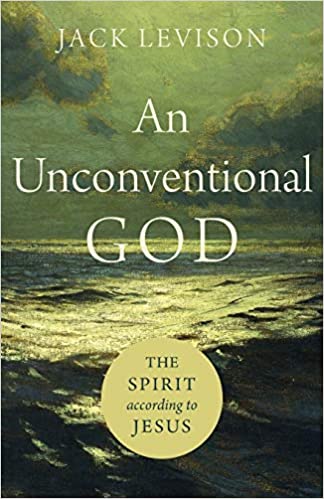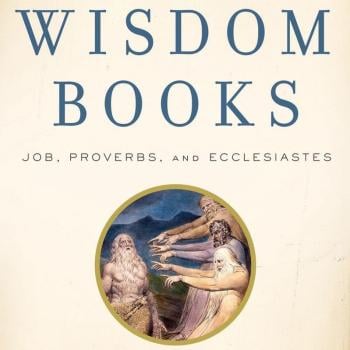Jack Levison is not a one trick pony. But he certainly has focused a lot of his scholarly work, and his more popular writings on the Holy Spirit. When we do the dialogue starting in the next post, we will ask him why. In his most recent book, an Unconventional God which focuses on the Gospels presentation of the Spirit he presents us time and again with fresh insights into the four different presentations of this subject in the four Gospels. It turns out, that even those of us who have written commentaries on each of these books still have much to learn and explore about the Spirit in the Gospels, and in some ways 240 pages was not enough on this subject. I wanted more.
This book is a pleasure to read because it is so well written, which sadly is often not the case with books by Biblical scholars. Jack has the gift of good turns of phrase which makes his points memorable, perhaps even memorizable at points. The burden of this book is not just to present new insights, though it does that, but to present true insights that we might have overlooked, ignored, or dismissed. For example, Jack notes how the Holy Spirit is the one who cast Jesus out into the wilderness to be tempted (see Mark’s account). The Spirit, it turns out is more rambunctious, disturbing, unpredictable, and even dangerous than one might imagine if all you’ve done is focus on the fruit and the gifts of the Spirit as enumerated by St. Paul, or focused on the experiential results of encounters with the Holy Spirit. It turns out the Spirit is more about motion and commotion, moving things in the right direction, than about emotion. While the references to the Holy Spirit are sparse in the Gospels compared to Acts or Paul’s letters, they are quite important. They remind us, for instance, that Jesus performed his miracles not by his divine nature but by means of the Holy Spirit which dwelt within him, the very same means by which his disciples later performed miracles. There are Christological implications from what a close study of the Holy Spirit’s work in the Gospels reveals.
Not surprisingly, since Jack is an OT scholar this book is an intertextual feast, as he brings to bear all sorts of OT texts that may lie in the background or even the foreground of what the Gospel writers are trying to say about the Spirit. While I don’t always find the suggestions about larger OT contexts illuminating OT allusions in the NT convincing, there is nevertheless much to ponder here. How exactly was Jesus the fulfillment of the OT, and what role did the Spirit have to play in all of this?
An Unconventional God is a companion book to Jack’s earlier A Boundless God volume as there is much more to be said about the Spirit in the Bible and in the experience of believers. Kudos to Baker Academic for making this most recent Levison offering available. It’s a volume worth reading carefully, savoring, and using as one prepares one’s preaching, teaching, or personal study of the Bible.















